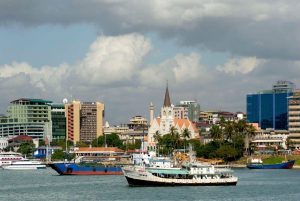Kenya’s aviation sector growth is expected to double in the next two decades, a move that is expected to boost the Gross Domestic Product by $11.3 billion, says International Air Travel Association (IATA).
The IATA says the growth will result from an increase in journeys made through the Jomo Kenyatta International Airport (JKIA) that is expected to grow by additional 11.3 million passengers, creating over 449,000 jobs.
“Over the next 20 years the Kenyan market could more than double in size, resulting in an additional passenger journeys and a $11.3 billion boost to GDP by 2037,” says IATA regional vice president Muhammad Ali Albakri.
IATA recently published a study on the value of aviation in Kenya, which showed that the sector and tourism contributed $3.2 billion to GDP in 2017. Currently the sector accounts for 4.6 percent of Kenya’s economy and supports 410,000 jobs.
However, IATA has identified four key areas that the government needs to address in order to promote aviation growth and bring even more value to the country. This include improving operational efficiency at JKIA if the facility is to remain a competitive connecting hub in the region.
“Improving operational efficiency at JKIA is essential if Nairobi is to remain a competitive connecting hub and East Africa’s main air cargo hub,” the agency says.
The second item that IATA wants the government to work on is the implementation of Single Africa Air Transport Market (SAATM). The move, argues the agency, will open Africa skies and ease the movement of the airlines across the continent.
For Kenya to achieve this, IATA says Kenya ought to anchor its regulatory framework in law.
In 1988, a number of African countries came together with the view of creating an open airspace for ease of movement and boost trade on the continent in what was called Yamoussoukro Declaration.
In 2000, the decision was endorsed by heads of state and government at the Organisation of African Unity, — now African Union— and became fully binding in 2002.
However, to date, not much has been done in regard to adoption of the open skies policy by member states as 14 nations have not ratified the treaty.
African nations are protecting their airlines from stiff competition, putting in doubt whether the dream of open sky policy will be achieved.
Mr Albakri says African nations are hurting their economies by protecting their national carriers by failing to implement open sky policy.
“With open sky policy, it means that more airlines will fly and the cost of air ticket will be affordable. This ( also) means that countries’ economies will benefit from this,” he said.
Kenya refused to grant Ethiopian Airlines a new route in December last year in what was an apparent protection of Kenya Airways against one of the most successful airlines in the region.
The Kenya Civil Aviation Authority (KCAA) applied brakes on Ethiopian Airlines’ quest of getting a license to operate scheduled passenger flights on the Johannesburg-Nairobi–Brussels route.



